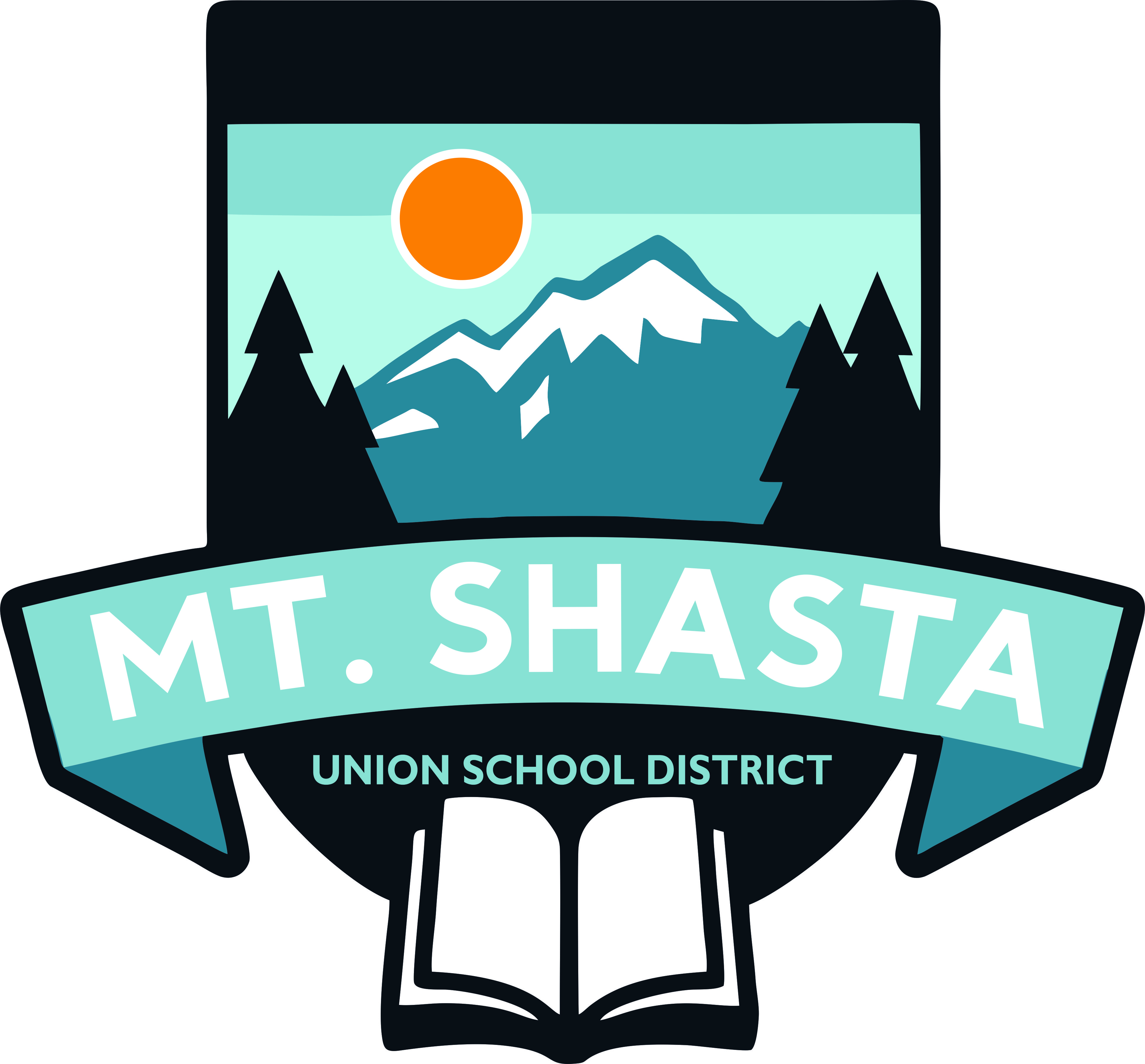It's National School Lunch Week, and there's no better time to talk about our new salad-bar-based lunch programs at both school sites.
Until the start of this school year, we partnered with a neighboring district to provide our school lunches. The food was largely prepared in Weed, and our staff drove to pick it up and kept it at the required temperature until we served the food to students at lunch. While we remain grateful for the partnership, the travel time and the long time between food prep and when the food was served affected the appeal of the food, and we knew we could do better. Not to mention that we were at the mercy of the neighboring district; if they closed their program or downsized, our district would have been left scrambling to find a solution. They were also able to set their own meal prices, and we had to adjust ours accordingly.
Enter the Rawitch sisters and other founding members of School CAFE who formed a group to address the issue of school lunch quality. As students at the time, the girls felt the school lunches could be improved, but our district didn't have the ability to make any changes because we weren't in charge of our own lunch program. Members of CAFE, the school board, and the superintendent toured the lunch facilities of three neighboring school districts to try to form a plan on how we could move forward.
Initially, we thought we had to construct our own commercial kitchen because neither school site has one. That could have cost nearly half a million dollars when factoring in all architect and construction costs. After further research, we realized we could run a salad-bar-based program with only small modifications to our current facilities. Members of CAFE started raising money to help in the transition and ultimately donated $8,500 to the district that we used to purchase the salad bars and other items necessary to make the switch.
During the summer of 2019, our district office staff began the hard work of laying the foundation for this year's new lunch program. We filed paperwork with the state, brought in the health department, and made the necessary changes and purchases to bring the kitchen at Sisson in line with current food-prep standards. We reorganized our lunch bell schedules at both schools in order to accommodate the salad bars and the additional time it would take for students to build their own salads there. Before the school year started, our food services staff began rooting out the devil in all the details that went along with starting a lunch program of our own.
Now our students have fresh veggies daily in our salad bars at both schools. We started off the year only serving chef salads so that we could make sure all our ordering protocols and proper staffing levels were in place before bringing on the additional challenge of serving hot food to students. Now on every Monday through Thursday, our students enjoy hot meal items along with the salad bars. The hot food items are mostly heat-and-serve and those items are prepared on-site at both schools.
What's next for our lunch program? We have applied for an equipment grant that will supply MSE with a commercial freezer that we need. This summer, we will work to certify our MSE kitchen as a prep space as well, so the veggies can be prepped at MSE too. We continue to add new meal items as space permits, as commodities from the state are delivered to us, and as we have time to plan further expansion of the menu. Ultimately, we'd like to hire a food services director who can take our lunch program to the next level by forming farm-to-school partnerships and providing more scratch-cooked menu options. Due to the fact that we do not receive adequate funding from the state, we'll need help at the legislative level to make that happen.
As luck would have it, the California School Boards Association (CSBA) reports that on Oct. 14, 2019, a coalition led by CSBA, the Association of California School Administrators and the Community College League of California submitted language to the Attorney General’s Office for the Full and Fair Funding: Public School Progress, Prosperity, and Accountability Act of 2020. The filing brings the Full and Fair Funding initiative a step closer to the November 2020 ballot. We are watching developments of this issue closely because the Act, if put to the voters and passed, would, according to a release from CSBA, reverse four decades of underinvestment in our schools and bring California’s per-student funding to the national average.
We've come a long way in a very short time. Thanks are in order for our district office staff, our food service staff, the school board for taking this risk, the volunteers of School CAFE, and the many members of our community who donated to CAFE to make this transition a reality. We welcome you to tour our cafeterias at lunch and see these exciting changes for yourself.

